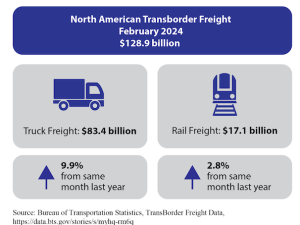"The VPA's new license agreement will give our port a greater role in ensuring that trucking companies comply with the Memorandum of Agreement (MOA) that was developed by Vince Ready in the aftermath of the 2005 container trucking dispute," said Captain Gordon Houston, President and Chief Executive Officer of the Vancouver Port Authority.
This new policy supports the VPA's goal to develop a more stable model for the container-trucking sector in the Lower Mainland."
Policy details include:
- The VPA is now requiring all trucking companies that transport containers to and from the port to apply for a new license that contains the new requirements. All existing licenses are valid until January 15, 2007. After that date the terms of the new license will apply.
- Effective immediately, the VPA will only accept applications for new licenses from companies that transport containers to and from the lower mainland ports exclusively with company-owned equipment and employee drivers.
- Any trucking company that does not conduct business at the lower mainland ports for 90 consecutive calendar days will lose its license. Long-haul carriers will be exempt from this provision.
- All trucking companies applying for a license must provide the VPA a signed copy of the MOA. Any company that fails to do so will not be eligible for a new license. New provisions will provide for the investigation, inspection and auditing of company records to ensure compliance with the MOA.
"The new trucking policy will increase stability in the container trucking sector by ensuring that companies do not continue to undercut each other to the point of another market failure," said Houston. In 2005, container truck drivers walked off the job saying they were not able to make ends meet. "The race to the bottom has to end if we are to restore stability to container trucking operations in the lower mainland," Houston said.







